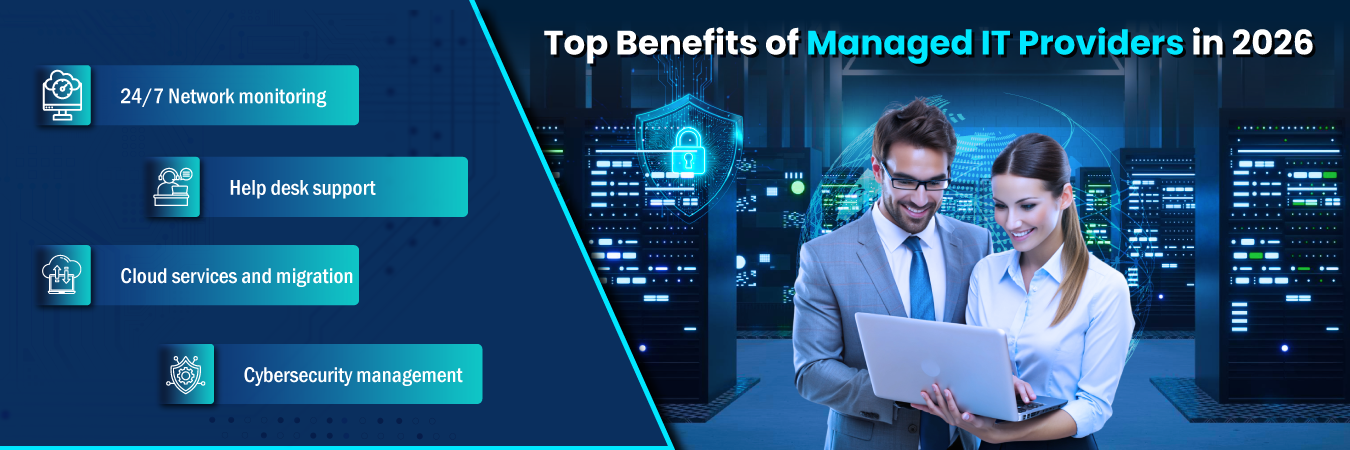
Hire Skilled IT Resources – On-Site and Off-Site Tech Support Team
Technology continues to influence the business world in a way that almost everything, right from the way business owners design strategies, to the business gadgets they use, depends on technology. So, a few moments of an outage can bring production to a halt, thereby affecting every business element.
Such a dynamic environment demands to hire skilled IT resources for on-site and off-site technical support to ensure seamless business operations. But then, technology keeps upgrading itself. Something that’s trending today may turn redundant the next day, rendering the existing skillset obsolete!
Now, although that’s useful to the world, it brings a host of challenges to IT recruiters, as they struggle to find the right set of talent. But the good news is they don’t have to live with them. Outsourcing is something that proves a savior amidst the industry’s challenges and the fast-paced environment, where every second costs business to the company.
So, let us talk about the solution now. This blog discusses some of the common challenges in hiring skilled IT resources, some tips on managing an on-site IT tech support team and making it successful, and guidelines on hiring remote IT tech support team for client projects.
Challenges in Hiring Skilled IT Resources
IT hiring, especially in India, wherein there’s so much of talent around, may seem obvious. You float a vacancy, and you attract a crowd of candidates outside your office. But, it isn’t as straightforward. Yes, there’s a lot of talent out there, but whether it is relevant to your company or not poses a challenge for most of the IT recruiters. But is that the only challenge? Not really. Here’s more to them.
1. The Time-Consuming Tech Hiring Process
Technology is a crucial aspect of everyone’s life. Hence, bad or irrelevant hires may prove detrimental to the project, and the company’s reputation and success. True that, but then, it refers to being extra cautious while hiring. Of course, we all know the IT industry’s notoriety when it comes to the interview rounds. All of it translates to an increase in average hiring time.
Reports suggest that the average hiring time in the IT industry is a whopping 52 days! A period as long as 52 days is enough for the company to lose a project, and spoil its reputation in the market.
2. Agreement over the Hiring Budget from the C-Suite
Another challenge with IT hiring is that the recruiters don’t get an agreement from the C-Suite on the cost per hire. High-end tech roles and leadership positions deserve a higher salary. But, at times, IT companies don’t meet the salary expectation of candidates. In such a situation, the topnotch executives of the company try and hire the candidate and compromise with the recruitment budget.
3. Lack of Innovative Recruitment Strategies
We talk a lot about innovations, technologies, and strategies. But, most of these talks don’t seem to materialize in the real world. Hiring isn’t an exception to this approach.
A lot of IT companies yet rely on comfortable, conventional hiring processes. Recruitment isn’t just a process anymore. It is a strategy that aims at getting the best and the most relevant talent onboard. It results in a higher recruiting time and a higher cost per hire.
Some IT companies adopt the first come first serve recruitment strategy to overcome the recruitment challenge. But, they often end up hiring irrelevant candidates and losing on the more aligned chunk. With such an incorrect approach, companies are more likely to lose good talent to their peers.
4. Emphasis on Hiring Permanent People
Yes, some still do it. They aren’t able to step out of the conventional hiring thought process and employment approach. A lot of such companies hire resources on the company’s permanent role, and land in trouble when projects dry up, or recess. So, they either lay the extra chunk off, and come in a bad light in the employment market.
As new-age industry players, companies must understand the changing nature of jobs and the business. A blend of permanent, temporary, and augmented resources helps companies thrive these days.
5. Scarcity of Techies with Excellent Communication Skills
Now, that’s a real big problem. The tech business, over the years, has undergone a lot of changes. Today, people look at techies as technology specialists, and not just support technicians. Clients and companies expect technology experts to be good communicators, if not exceptional ones.
Often, tech support engineers are great at their job, but they prefer taking the back seat when it comes to handling critical situations and managing escalations. IT recruiters, who confront factors such as average recruitment time, cost per hire, project pressures, and factors alike, don’t have much of a choice while recruiting such people! They hire them and further invest in communication training, etc.
5 Tips on Managing On-Site IT Tech Support Team
On-site IT tech support constitutes an essential element of the network, server, and overall IT efficiency of your business. An efficient on-site IT tech support team helps increase the system uptime, reduce downtimes, and keep the network secure at all times. Besides, it also helps users resolve system-related concerns, and the company to identify problems in the system to devise proactive solutions.
A team that’s so critical to the success of every business is more than just a team. It is an independent business division, responsible for a wide range of business-sensitive functions. Hence, it is imperative to efficiently manage the on-site IT tech support team and get the best out of it. Here are five tips that will help you manage your IT tech support department well.
1. Continual Improvement in the Capabilities of the IT Team
From Tier 1 to Tier 3, and perhaps, Tier 4 – with time, you must focus on upgrading the functionalities, and the capabilities of your IT team. Why?
The progression of capabilities helps you get better and more qualified people on board and automating the basic ones. It not only saves time but also ensures development in the level of efficiencies across the entire organization. It also enables the support team to resolve the more complex and critical concerns. So, focus on the continual development of capabilities, without sticking to the old ones.
2. Developing a Business-Minded Thought Process
Business is a group of verticals and departments coming together to achieve a common objective. IT is one of them. But then, a business succeeds only when the departments think like the business, and don’t limit their thought process to a departmental one. The tech support division too needs to do it.
Your tech support needs to have a comprehensive understanding of the business and has to be aligned with its objectives. Today, businesses demand automation, smart solutions, etc. So, is your tech support team in sync with these demands, or is it struggling with the basic services? Is it able to prioritize requests and functions according to business demands, or is it limiting to conventional workflows?
So take time to review the support department, ask these questions, and ensure that you fine-tune it with the objectives of the business, for better efficiency, and success.
3. Maintaining Internal Communication
Silos develop in the absence of internal communication. It eventually reflects on your external communication as well, and customer service. So, always encourage internal communication, and ensure that the team has healthy interactions, exchanges relevant and necessary information to align each other to the business needs. Such an approach fosters success in the long run.
4. Accepting the reality and working towards Improving it
Tech support is a service-oriented function. While providing a particular service, it isn’t practically possible to earn a five on five ratings at all times. At times, you will confront escalations, and sometimes users may rate you low. But then, that doesn’t mean you will run away from the reality. Accept it, talk to users, consult experts, create a plan, and get the plan going. These factors will help improve the service.
5. Organize Training Sessions regularly
The helpdesk time will perpetually stay engaged with work and hence may not get the time to undertake self-training. In such a situation, organize training sessions to ensure you upgrade their skills, knowledge about various IT support tools, and techniques, enhance their soft skills, and augment the levels of customer service.
Hiring Remote IT Tech Support Team for Client Projects
Remote IT tech support also helps. It doesn’t demand office space. The remote IT support team supports your IT infrastructure through the internet from its location. Hiring an efficient and capable remote IT tech support team for client projects is critical from the viewpoint of your company’s reputation and also ensuring seamless project operations.
Take a look at some vital tips, and parameters you must gauge the prospective provider on. These tips will help you make an informed choice, and also increase the chances of successful tech support.
1. The Experience of Handling Critical Client Projects
Remember, you aren’t hiring the remote tech support team for regular IT support, but for a client project. So, make sure that you discuss the tech team’s experience of handling IT support and the necessary support infrastructure for handling client projects.
Also, examine the success rate of the provider with such projects. Talk to the provider’s clients that have assigned such projects to the team, and how well did everything go during the projects.
2. The Remote IT Support Tools and Technologies at Disposal
Check the availability and relevance of the remote IT support tools and technologies that the vendor uses in the context of your client’s project. These tools and techniques ensure support and operational efficiency. Some of the latest tools include Connectwise Control, LogMein Pro, RemotePC, NinjaRMM, ISL Light, SolarWinds Take Control, Splashtop Remote Support, and others.
3. Technical Certifications and Experience of the Support Staff
Certifications and experience matter a lot. Qualified and experienced people have the necessary technical understanding, and the capabilities to handle critical situations. So, ensure that you discuss their experience with the decision-makers, and also check their qualifications. One of the most popular certifications within the IT support space is CISCO IT Support Certification.
4. Services that the Remote IT Support Company offers
A broader service portfolio will ensure you a relief from the routine IT-related operational hassles. Ideally, a provider offering services such as desktop support, database management, network setup, cloud computing, backup maintenance, network security, network monitoring, and troubleshooting, system upgrades, etc. must constitute your choice.
5. IT Support Strategy and Recommendations
Check whether your vendor is only a service provider, or a comprehensive expert possessing a strategic understanding of remote IT support. Besides, also see if the provider makes relevant and vital recommendations to ensure blissful IT operations throughout the project. Multilingual capabilities are another value addition in this regard, and especially if you’ve got a team handling overseas operations.
Fidel – One of the Leading IT Support Companies in India
Fidel is a leading global remote IT support services company. It has been in the remote IT support services for years and boasts about a proven track record of working with a range of companies and businesses around the world.
Fidel has the latest IT support tools and techniques, technically qualified multilingual resources, and the experience-driven capabilities to make valuable recommendations. Connect with Fidel remote tech support experts for your remote IT support requirements at +91-20-49007800 or write to us at sales@fidelsoftech.com.
Ref. No – FB08221005
Related Blogs
Top Benefits of Partnering with a Managed IT Provider in 2026
Situation As a managed IT provider, system reliability is essential. Imagine it is 8:45 AM on Monday. All your teams are logging in. The sales team...
IT Staff Augmentation vs Managed Services: Key Differences
Staff augmentation vs managed services – if you’re looking to scale your IT capabilities but are stuck at a crossroads, unsure whether to augment...
The Role of IT Infrastructure Support Services in Data Management and Security
Data management and security are critical areas for every company. Data breaches and thefts not only cost money but also reputation…



